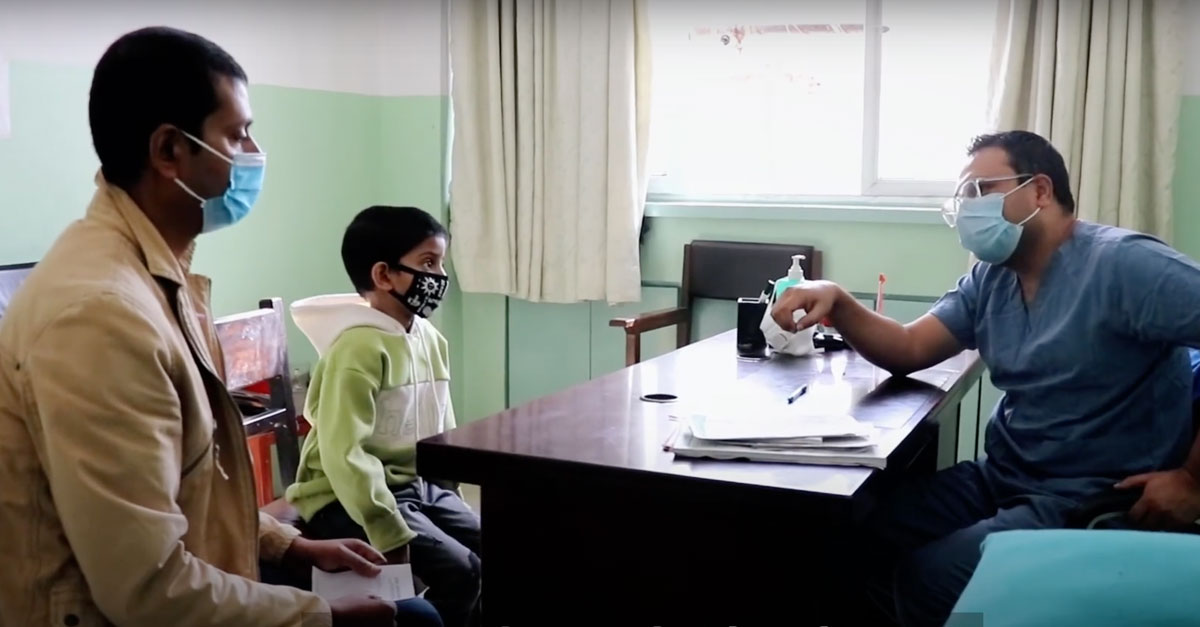The WFH and the NHS have been collaborating for years to improve care in the country. This work has been done through several programs, notably the WFH Path to Access to Care and Treatment (PACT) Program, the WFH Development Grant Program (DGP), and the WFH Humanitarian Aid Program.
The result of this collaboration has been official recognition of the local bleeding disorders community, the development of a 10-year strategic plan by the Ministry of Health and Population, and the provision of free treatment products for people with bleeding disorders (PWBDs). The NHS also worked with other organizations to further bolster its efforts; for example, it became a member of the National Federation of the Disabled Nepal (NFDN) to help raise awareness for the community in Nepal.
WFH program support and WFH Humanitarian Aid Program donations played a crucial role in establishing the NHS as a credible representative of the bleeding disorders community. The Nepalese NMO effectively demonstrated that timely access to factor concentrates significantly improved quality of life: patients experienced fewer bleeding episodes, leading to enhanced overall health and well-being. The NMO also proved that the ability to manage and prevent bleeding incidents translated into increased productivity, better social integration, and improved mental health for PWBDs.
In 2017, a significant milestone was marked in Nepal when hemophilia was recognized as a disability under the Nepal Government Act. This legal recognition strengthened advocacy efforts, laying the groundwork for more government support. Now, all three levels of government in Nepal—central, provincial, and local—provide minimal but crucial support for the procurement of factor concentrates. Other support includes a 10-year strategic plan to provide PWBDs with free treatment; the establishment of better care centres for hemophilia patients; and commitments to provide day care facilities, coagulation labs, physiotherapy care, and psychosocial counseling to the community.
The progress made by Nepal is encouraging—and inspirational for other countries. Life is still very difficult for PWBDs, but things are getting better, and people in the community can now see that sustainable care could one day be possible.
Almost 6.9 million IUs of factor were donated to Nepal through the WFH Humanitarian Aid Program in 2023, along with 265 thousand IUs of non-factor replacement therapy. Since 2015, nearly 8.6 million IUs of factor, and over 850 thousand IUs of non-factor replacement therapy have been donated. To find out more about the WFH Humanitarian Program, please click here.
About the WFH Humanitarian Aid Program
The WFH Humanitarian Aid Program improves the lack of access to care and treatment by providing much-needed support for people with inherited bleeding disorders in developing countries. By providing patients with a more predictable and sustainable flow of humanitarian aid donations, the WFH Humanitarian Aid Program makes it possible for patients to receive consistent and reliable access to treatment and care. None of this would be possible without the generous support of Sanofi and Sobi, our Founding Visionary Contributors; Bayer, CSL Behring and Roche, our Visionary Contributors; Grifols, our Leadership Contributor; and Takeda and Japan Blood Products Organization, our Contributors. To learn more about the WFH Humanitarian Aid Program, visit www.treatmentforall.org.













